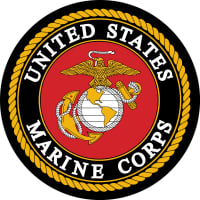Welcome! Here are the website rules, as well as some tips for using this forum.
Need to contact us? Visit https://heatinghelp.com/contact-us/.
Click here to Find a Contractor in your area.
If our community has helped you, please consider making a contribution to support this website. Thanks!
venting for gas boiler
Options
heatingdpeng
Member Posts: 35
in Plumbing
I have weil-mclain CGA-5 boiler, with 4 loops of radiant heat, and 2 loops of cast iron baseboard and radiator. The plumber installed the venting for me as picture shown, first section is 2 feet, second section is 4 feet, connecting to the chimney. before he use cement to close the hole, I am aware the 6 inch pipe is very close to very the end of chimney wall. the first and second section of 6 inch pipe is pitch at .25 inch per feet. Now the problem is there is water come out the floor after the boiler run. I do some research, it maybe condensation. Can anyone point me a direction how to fix this ? What is wrong with this setup ? thanks in advance.
0
Comments
-
Did they line the chimney?0
-
the chimney is as it is, used to have oil boiler connected to it, now change it to gas boiler, never do anything on chimney. when you said line the chimney, you mean put a liner in it ? to protect the chimney ?0
-
In New Jersey an oil to gas chimney MUST be lined...Condensate issue may be from over sized chimney as well. Flue gasses not getting hot enough to dry out chimneyLANGAN'S PLUMBING & HEATING LLC
Considerate People, Considerate Service, Consider It Done!
732-751-1560
email: langansph@yahoo.com
www.langansplumbing.com1 -
Besides needing a liner, is that drywall almost touching the smoke pipe?
Is this acceptable being the paper is a combustible material?Single pipe 392sqft system with an EG-40 rated for 325sqft and it's silent and balanced at all times.
0 -
the drywall is touching the smoke pipe. What I mean is 6 inch pipe is touching the wall of chimney. Please see picture. If needing a liner, maybe cheapest way to solve the problem is open a hole in the wall, directly vent out the building ?0
-
Anytime I see a vent issue I always go by the book. No life is worth the savings of a penny. Chimney needs to be lined. Direct Venting would require the installation of a Power Venter. Can't vent sidewall without one.
There was an error rendering this rich post.
0 -
thanks Chris,0
-
The boiler is receiving return water temperatures below 140* f expected from low temperature radiant applications as well as large high water content radiators. Boiler protection in the form of a by-pass loop may be necessary. Read the manufacturers installation instructions that came with appliance. Otherwise you eventually will rot of the tile liner within the chimney.
A liner would be a good idea here, especially if the chimney is on outside of house. Primary- secondary piping would have been a good idea too.
Robert O'Connor/NJ1 -
Hi Robert, thanks for the info. Before I hired this plumber to install the boiler for me, I have done an extensive research on this topic about return water temperature. So I drew a design, asking my plumber to do what I drew. But he refuse to do so. He like to do his way. Now the end result is disaster. Not only the piping is cluster everywhere, it is difficult to service if one of the circulator pump fail. I also suspect that some of the limit control is on the wrong place(honeywell heat control and guarddog low water control). please see picture. Can someone point me the problem I have ? There is no by-pass loop, no primary and secondary. I would like to re-do the whole system again, and position the boiler properly and using direct venting system to vent to site of the building. If I do not re-do this system, the return water is definitely too low for the boiler, it will eventually damage the system. please give me a quotation.
0 -
-
Any time you change fuels you must have a level II (comprehensive) inspection of the chimney per NFPA 211. This will undoubtedly require you to install a properly sized listed liner to its listing. The vent connector in question is illegal as single walled unlisted connector requires a 6" clearance to combustibles. The connector cannot just be stuffed into the base of the chimney. It must be contained in a sleeve such that is can easily be removed for inspection or service or, to permanently cement it in place, it must be stainless steel. It sounds like you have a condensation issue. The liner will help but you still need a bypass and perform combustion analysis to see where you are. Install unlisted low level CO monitors at each floor level within 15 lf of sleeping rooms. Provide adequate makeup air per the code and as demonstrated by combustion analysis. Test for depressurization and correct the building to make the chimney work. Yes, drywall is a combustible material as it cannot pass ASTM E-136 or meet the NFPA definition. In this test, drywall is destroyed by the 1,384F vertical tube furnace. Without the liner, you'd need a cleanout withn 12" of the base of the chimney. With a liner, a cleanout is no longer required so the liner can be pulled through like a hockey stick. It will flow better this way, too. Your vent connector needs support at the elbows, near the chimney breaching and about every 4 ft. with 3 screws min. per joint equidistantly spaced and snap-lock seams above 5-7 O'clock positions on horizontal runs. HTH,
0 -
thanks bob, I understand now. the house is in Staten island0
Categories
- All Categories
- 87.5K THE MAIN WALL
- 3.3K A-C, Heat Pumps & Refrigeration
- 61 Biomass
- 430 Carbon Monoxide Awareness
- 122 Chimneys & Flues
- 2.1K Domestic Hot Water
- 5.9K Gas Heating
- 117 Geothermal
- 170 Indoor-Air Quality
- 3.8K Oil Heating
- 78 Pipe Deterioration
- 1K Plumbing
- 6.6K Radiant Heating
- 395 Solar
- 15.9K Strictly Steam
- 3.5K Thermostats and Controls
- 57 Water Quality
- 51 Industry Classes
- 51 Job Opportunities
- 18 Recall Announcements




